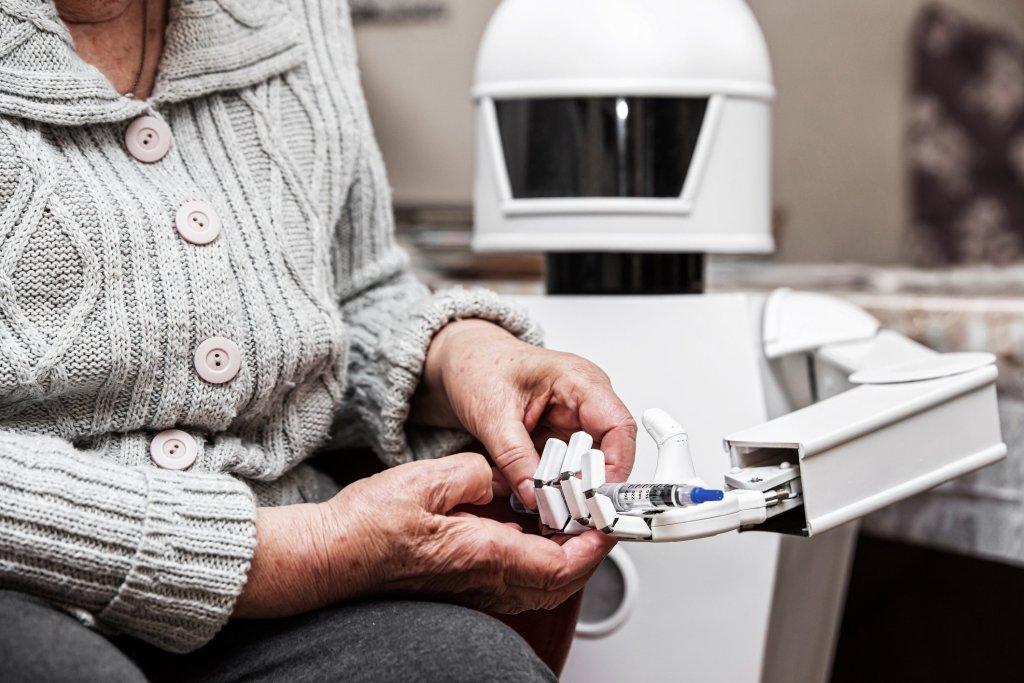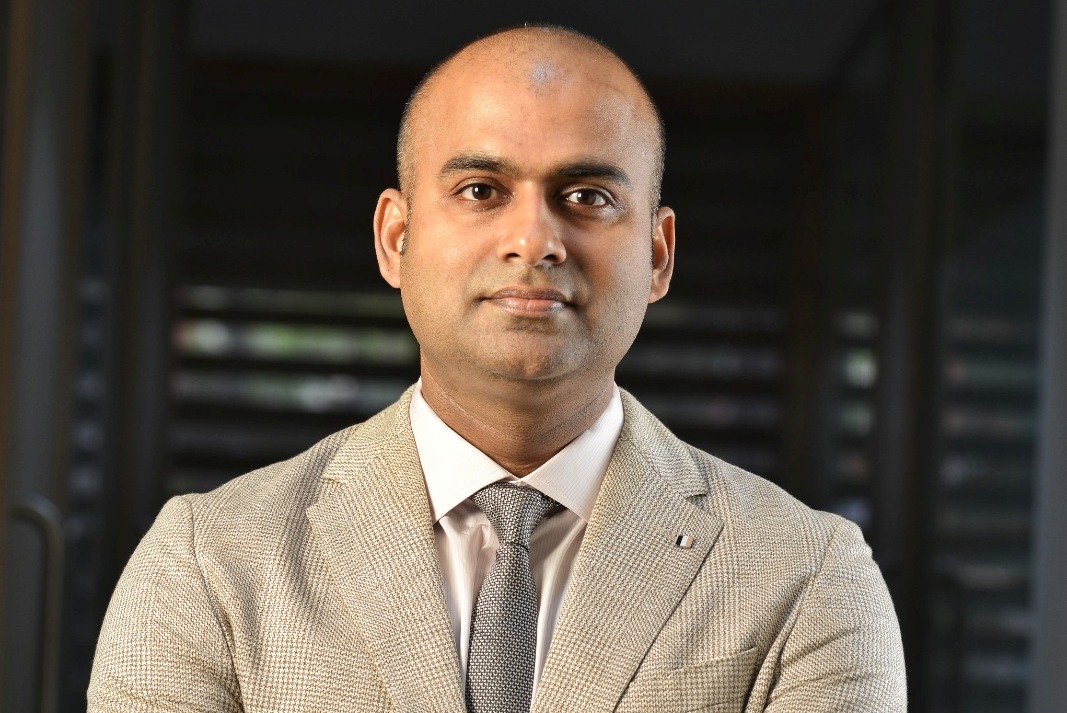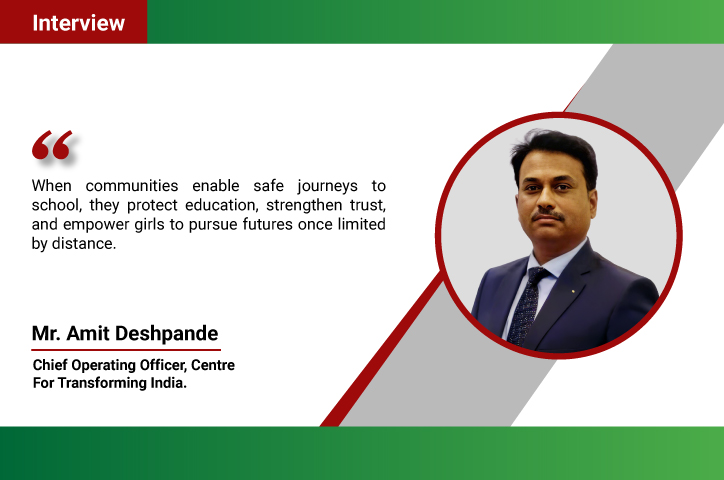 Elder care is undergoing a remarkable transformation, with innovative technologies redefining how support and care are delivered. Neha Sinha, Co-Founder and CEO of Epoch Elder Care, leverages her expertise as a Clinical Psychologist and Dementia Specialist to explore this shift. With a proven track record of enhancing elder care services in India, including being featured in Forbes' 30 Under 30 Asia list in 2016, Neha is uniquely positioned to discuss the intersection of technology and assisted living. Under her leadership, Epoch Elder Care operates six specialized homes across the country, offering services such as 24/7 Dementia Care and Palliative Care. This hands-on experience provides her with unique insights into the practical applications of technology in elder care.
Elder care is undergoing a remarkable transformation, with innovative technologies redefining how support and care are delivered. Neha Sinha, Co-Founder and CEO of Epoch Elder Care, leverages her expertise as a Clinical Psychologist and Dementia Specialist to explore this shift. With a proven track record of enhancing elder care services in India, including being featured in Forbes' 30 Under 30 Asia list in 2016, Neha is uniquely positioned to discuss the intersection of technology and assisted living. Under her leadership, Epoch Elder Care operates six specialized homes across the country, offering services such as 24/7 Dementia Care and Palliative Care. This hands-on experience provides her with unique insights into the practical applications of technology in elder care.
In this article, she examines how tools like remote monitoring, wearable health devices, telehealth, and smart home technologies are improving safety, health outcomes, and quality of life for seniors. She also highlights future possibilities, such as AI-driven personalized care and virtual reality, which could further enhance elder care. However, she reminds us that while technology can augment care, it must complement, not replace, the human connection that remains essential to compassionate elder support.
This article offers a nuanced perspective on the evolving role of technology in assisted living, providing a roadmap for how it can create safer, more dignified, and fulfilling lives for seniors. Read on to discover how innovation is shaping the future of elder care.
The Role of Technology in Assisted Living: Innovations and Opportunities
Technology plays a pivotal role in enhancing assisted living environments, where elders often rely on consistent support and expert care to maintain their quality of life.As the global population ages, expected to reach 3.47 million by 2050, these environments will become increasingly relevant for the elderly. Additionally, they ought to be supplemented with technological advancements to offer them comprehensive care. Such aid can provide real-time updates, virtual connection, and a sense of security to families and caregivers, regardless of the distance, especially when physical visits appear unlikely.
At present, a range of technologies are available to enrich elders’ lives in assisted living environments and ensure that they enjoy optimal health and well-being. In light of this, an important innovation is remote monitoring and telehealth which enables overseeing the health of elders from afar through activated sensors. It simply detects movements and behavioral triggers and subsequently, alerts families or caregivers on a resident’s medical status. Undeniably, telehealth has now emerged as a life saver, enabling remote check ups, timely screenings, and emergency consultations for elders. Also, it provides immediate support, preventing the decline of their health in an effective manner.
In addition, wearable health devices such as smartwatches and health-monitoring bracelets have aided families and caregivers today in assisting elders. Essentially, these devices track crucial health signs such as heart rate, blood pressure, and oxygen levels in a real-time scenario. Furthermore, its advanced mechanisms can detect falls and notify the caregiver or family of an emergency circumstance that maybe injurious to an elder.
Another crucial aspect of assisted living is medication management.As many elders are required to take medications to maintain optimal health, technology can ensure the right dosage at the right time. It comprises devices such as electronic pill dispensers or automated reminders to mitigate medication errors. Alongside this, they empower families or caregivers to track the prescribed amounts and time at which they are to be taken, hence reducing the chances of untimely hospital visits.
Many assisted living environments are now powered by smart home technologies. It provisions for elders’ prerequisites, inclusive of smart thermostats and motion sensors, enabling them to control their surroundings with ease. For instance, voice-activated lights come to the aid of elders with mobility trials, eliminating the need for complicated switches. In addition to this, sensor-based temperature controls allow them to adjust the room according to their comfort, alleviating the need for consistent adjustments.
Furthermore, social interaction platforms have mitigated feelings of isolation and loneliness among elders. Through virtual calls, they now have a chance to engage in face-to-face interactions with family and friends. It not only promotes their mental well-being but also nurtures social connection. These days, several assisted living environments have established comfortable spaces for residents to do so.
Besides this, digital communities present a welcome opportunity for elders to be part of group activities and pursue an active social life. Technology also provides wide-ranging occasions for them to further their personal goals. With online courses, e-books and interactive games available at the click of a button, elders can enrich their mental proficiencies and learn new skills consistently in their golden years.
As technological advances are anticipated in the future, it is bound to create new possibilities for enhancing the experience of elders in assisted living environments. The forthcoming years may witness personalized care through AI and data analytics and offer tailored plans for each resident. It will usher us into an era of proactive care for elders, offering assistance on routine tasks, such as delivering medicines or providing drinking water. Novel AI-driven systems may be able to monitor the emotional states of residents by evaluating voice tone, facial expressions and patterns of social engagement. When signs appear unfavorable, it can notify caregivers or families, enabling early detection of mental ailments.
The future may even involve companion robots who can sense emotions and offering aging, meaningful conversations to elders. Likewise, holographic telepresence can bring to life remote consultations and mental health support in assisted living environments. Given that cognitive engagement is central to ensuring their mental well-being, immersive VR experiences can inspire residents to re-live cherished memories or take virtual trips to local and global destinations. These practices can prove to be beneficial in augmenting their cerebral function and elevating their recreation times.
Additionally, robot assistants can also be potent in empowering elders to explore their preferred digital content, music, or movies. They may even aid in enhancing elders’communication with relatives and friends at their time and convenience. The opportunities that lie ahead certainly appear exciting, promising a world where every elder has access to necessary, state-of-the-art, tech-enabled tools.
Advanced sensors, can play a crucial role in preventing falls by detecting unusual movement patterns and sending immediate alerts to caregivers, ensuring timely intervention. Data analytics tools and health apps are revolutionizing preventive care. By tracking health metrics and identifying subtle changes over time, these technologies can predict potential health issues and enable early interventions.
In assisted living environments, technology is revolutionizing care, especially for residents with dementia. Wearable camera systems now capture real-time behavioral patterns, providing healthcare professionals with accurate and consistent insights. This helps improve care plans and responses without solely relying on caregivers. Additionally, Global Positioning System (GPS) technology ensures the safety of residents prone to wandering. Modern GPS trackers, discreetly embedded in garments or personal items, allow caregivers to quickly locate residents if they go missing, offering peace of mind and immediate intervention. For caregivers, proficiency in these technologies is crucial, enabling them to deliver more effective and responsive care while staying connected to healthcare advancements.
As technology becomes an essential part of elder care, cybersecurity must be prioritized to protect sensitive data. Devices like virtual assistants, wearable sensors, and surveillance systems collect detailed personal information, necessitating robust security measures like strong passwords, multifactor authentication, and secure networks. While technology streamlines tasks and enhances safety, it cannot replace the emotional connection and compassion provided by caregivers. In assisted living, technology can supplement the human touch, ensuring that residents experience comprehensive, dignified, and compassionate care, fostering healthier and more connected lives.





 Elder care is undergoing a remarkable transformation, with innovative technologies redefining how support and care are delivered. Neha Sinha, Co-Founder and CEO of Epoch Elder Care, leverages her expertise as a Clinical Psychologist and Dementia Specialist to explore this shift. With a proven track record of enhancing elder care services in India, including being featured in Forbes' 30 Under 30 Asia list in 2016, Neha is uniquely positioned to discuss the intersection of technology and assisted living. Under her leadership, Epoch Elder Care operates six specialized homes across the country, offering services such as 24/7 Dementia Care and Palliative Care. This hands-on experience provides her with unique insights into the practical applications of technology in elder care.
Elder care is undergoing a remarkable transformation, with innovative technologies redefining how support and care are delivered. Neha Sinha, Co-Founder and CEO of Epoch Elder Care, leverages her expertise as a Clinical Psychologist and Dementia Specialist to explore this shift. With a proven track record of enhancing elder care services in India, including being featured in Forbes' 30 Under 30 Asia list in 2016, Neha is uniquely positioned to discuss the intersection of technology and assisted living. Under her leadership, Epoch Elder Care operates six specialized homes across the country, offering services such as 24/7 Dementia Care and Palliative Care. This hands-on experience provides her with unique insights into the practical applications of technology in elder care.

.jpg)









.jpg)



